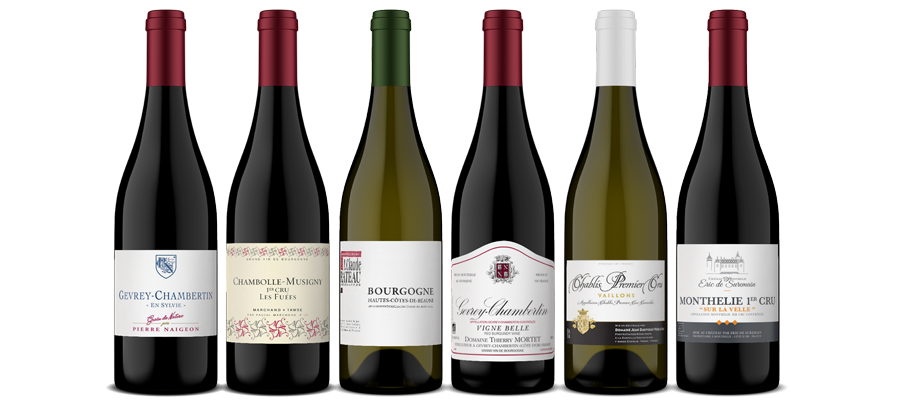View Articles by Category
ORGANIC, BIODYNAMIC OR NATURAL?

Organic wine
This is probably the most recognizable term of the three. There are different definitions according to what part of the world you’re in; for the EU, it was defined in 2012. The insomniac reader may wish to look up EU regulation 203/2012 for the full definition, and a good night’s sleep. The basics are that organic wine must be made using organic ingredients and organic techniques – in other words, no pesticides, fungicides, synthetic fertilizers, and no fancy processes like reverse osmosis or deacidification either. In Europe, sulfites can be added – they’re natural preservatives – but only in minute amounts. It’s not always easy to make wine the organic way, and it can be hard to become certified. But those producers who have succeeded know the value of simple, authentic products, as nature intended.
 Take the wines of Jean Dauvissat – one of a new generation of winemakers who took his family’s vineyards organic, and whose wines Elden Selections stocks. He uses only sulfur and copper – no weedkiller, systemics or chemicals fertilizers – and his wines tell their own story of how effective this can be. In the case of winemaker Thierry Mortet, his family had been using organic practices for years, so an official certification which was awarded in 2007 merely codified these. He uses a particular style of pruning to keep his vines in check, and microbiology is allowed to do its work in the soils around, as nature intended. Another producer – Domaine Jean-Fery – holds the prestigious Ecocert certification for organic wines. Indigenous, symbiotic yeasts are used, and the payoff is clear in his large selection of superb wines from both the Côte de Beaune and the Côte de Nuits.
Take the wines of Jean Dauvissat – one of a new generation of winemakers who took his family’s vineyards organic, and whose wines Elden Selections stocks. He uses only sulfur and copper – no weedkiller, systemics or chemicals fertilizers – and his wines tell their own story of how effective this can be. In the case of winemaker Thierry Mortet, his family had been using organic practices for years, so an official certification which was awarded in 2007 merely codified these. He uses a particular style of pruning to keep his vines in check, and microbiology is allowed to do its work in the soils around, as nature intended. Another producer – Domaine Jean-Fery – holds the prestigious Ecocert certification for organic wines. Indigenous, symbiotic yeasts are used, and the payoff is clear in his large selection of superb wines from both the Côte de Beaune and the Côte de Nuits.
Biodynamic wine
This term really describes an ethos – a way of life, a set of beliefs. Proponents of this method learn to appreciate and respect how all living things are interconnected. It involves an awareness of the energies and processes at work on earth, as well as those in space. Although they may raise eyebrows at times, these principles have a serious purpose – to make wines which are vibrant, natural, and which benefit the planet as well as the consumer.
 In many peoples’ eyes, there’s no better exponent of biodynamic wines in Burgundy than Jean-Claude Rateau. He’s been making wines this way for 40 years, nurturing the natural brown limestone soils throughout all the seasons of the year, and using minimal sulfur to produce great wines. Similarly, Eric de Suremain who works over in Monthélie, is a fan of the biodynamic method too. Certified organic since 2000, biodynamics underpin all his wines, and he describes his role as being akin to that of an orchestra conductor – keeping nature in tune with his vines. Another who understands it is Pascal Marchand; he sees the universe in a vineyard. Winemakers like him, who strive to keep their vineyards in balance reap benefits – both ‘bio’ and ‘dynamic’ – far beyond the value of their labor.
In many peoples’ eyes, there’s no better exponent of biodynamic wines in Burgundy than Jean-Claude Rateau. He’s been making wines this way for 40 years, nurturing the natural brown limestone soils throughout all the seasons of the year, and using minimal sulfur to produce great wines. Similarly, Eric de Suremain who works over in Monthélie, is a fan of the biodynamic method too. Certified organic since 2000, biodynamics underpin all his wines, and he describes his role as being akin to that of an orchestra conductor – keeping nature in tune with his vines. Another who understands it is Pascal Marchand; he sees the universe in a vineyard. Winemakers like him, who strive to keep their vineyards in balance reap benefits – both ‘bio’ and ‘dynamic’ – far beyond the value of their labor.
Natural wine
Natural wines – mostly unmanipulated, low-intervention, naturally-fermented – can also be organic (if they adhere to the right standards) and may also be biodynamic (if the winemaker follows the calendar, seasons and composting regimes). To define natural wine as ‘fermented grape juice and little else’ pretty much hits the nail on the head. Unlike for organic wine, there is no precise legal definition or regulation to say for sure what’s natural and what isn’t. But it’s important to note that if a wine is not labelled as natural, it doesn’t mean that it’s any less healthy or permissible, or any worse quality.
Pierre Naigeon, one of the winemakers who supplies Elden Selection’s capacious cellars, sticks to many of the principles of natural wine. His pruning methods control wine growth, and he uses no weedkillers or pesticides. His wines are fermented by natural yeasts (no additional cultured yeasts) and he bottles according to the phases of the moon. These methods, without fining and filtration, produce a pure expression of the terroir of the Hautes Côtes de Nuits and Gevrey Chambertin areas.
